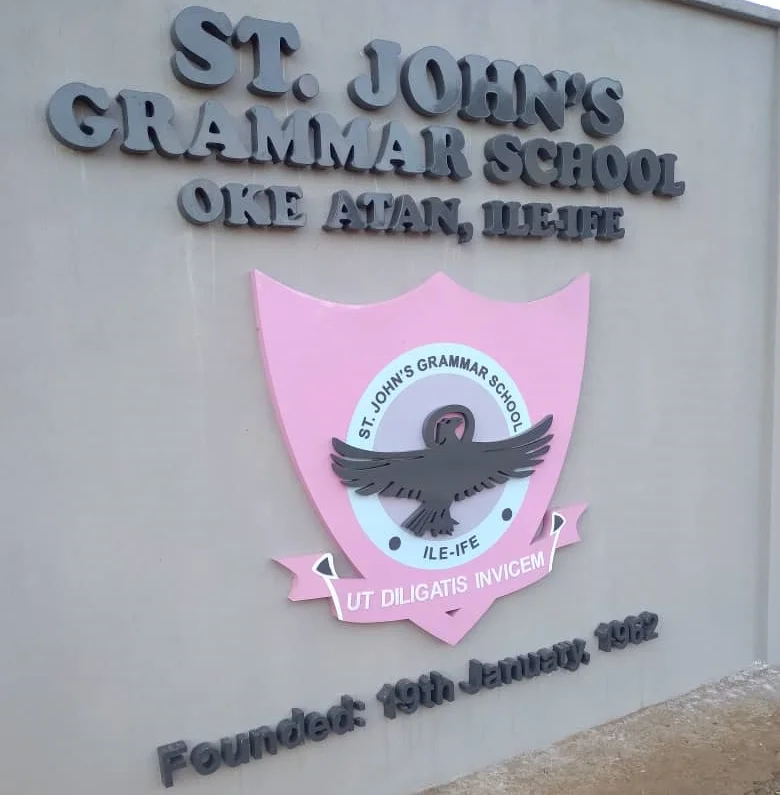
• NLC rules out strike today, awaits FG’s intervention
• Labour’s demand unrealistic, says Onanuga
• Why we cannot pay N62,000, by ALGON
The organised labour has again insisted it will not back down on its demand for a N250,000 national minimum wage.
This came as figures show that 36 states of the federation received about N6.715 trillion from the Federal Account Allocation Committee (FAAC) between July 2023 when the Federal Government halted the subsidy on petrol and last month, May.
For instance, before the subsidy was removed, six states in the northeast (Borno, Bauchi, Adamawa, Yobe, Taraba and Gombe) received N356.2 billion cumulatively. With the removal of the subsidy, the geo-political zone fared better with N802.8 billion.
Recall that state governors had maintained they would not be able to afford the N62,000 proposed by the Federal Government, talk little of N250,000.
President of Nigeria Labour Congress (NLC), Joe Ajaero, however, berated the governors, yesterday, saying: “How can any governor say he cannot pay? They cannot also be calling for the decentralisation of the minimum wage. Are their wages decentralised? Governors whose states are not contributing a dime to the national purse and who generate pitiable Internally Generated Revenue (IGR) are collecting the same amount as governors whose states are generating billions of dollars into the federation account.
“They should decentralise their salaries and emoluments first. So, where is the governor of Edo State, Godwin Obaseki, getting his money from? He is paying N70,000 minimum wage. This is the type of governor that should be emulated, not the lazy ones.”
Labour has insisted it would reject a N62,000 or N100,000 offer by the Federal Government.
Assistant General Secretary of the Nigeria Labour Congress (NLC), Chris Onyeka, disclosed this when he spoke during an interview on Channels Television, yesterday.
He said the N62,000 offer by the Federal Government and the Organised Private Sector (OPS) was a “starvation wage” that could not take workers home.
On labour’s position, even as the committee has ended negotiations and has submitted its report to President Bola Tinubu, Onyeka said: “Our position is very clear. We have never considered accepting N62,000 or any other wage that we know is below what can take Nigerian workers home. We will not negotiate a starvation wage.
“We have never contemplated N100,000, let alone N62,000. We are still at N250,000. That is where we are, and that is what we considered enough concession to the government and the other social partners in this particular situation. We are not just driven by frivolities but the realities of the marketplace, realities of things we buy every day: a bag of rice, yam, garri, and all of that.”
When asked what the decision of labour would be if the government insists on N62,000, he said: “It was clear what we said. We said we are relaxing a nationwide indefinite strike. It’s like putting a pause on it. So, if you put a pause on something and the organs that govern us as trade unions decide that we should remove that pause, it means we go back to what was in existence before.”
The tripartite committee on national minimum wage had submitted its report to the Secretary to the Government of the Federation (SGF) yesterday, following the conclusion of its assignment.
This was disclosed in a statement signed by the Director of Information and Public Relations in the office of the SGF, Segun Imohiosen.
He said a formal presentation of the report will be made to President Bola Tinubu for appropriate action, when the leadership of the organised labour as well as representatives of government and the organised private sector, who are currently in Geneva, Switzerland for the ongoing International Labour Organisation (ILO) Conference, return to the country.
The SGF thanked the chairman of the committee, Bukar Goni Aji, and members for their commitment and sacrifices.
Recall that President Bola Tinubu inaugurated a 37-member tripartite committee on national minimum wage on Tuesday, January 30, 2024, under the provisions of the Minimum Wage Act, 2019. The committee was tasked with the responsibility of recommending a new national minimum wage for Nigerian workers in public and private sectors. Playing a waiting game, Ajaero ruled out any strike action today.
Speaking at the ongoing International Labour Conference (ILC) organised by the International Labour Organisation (ILO) in Geneva, Switzerland, he said: “The tripartite committee submitted two figures to the President. Government and employers proposed N62,000 while labour proposed N250,000. We are waiting for the decision of the President. Our National Executive Council (NEC) will deliberate on the new figure when it is out.”
He maintained that the submission of N62,000 proposed by the government does not translate to labour accepting the figure as a new minimum wage.
On expiration of the one-week ‘relaxation’ of the strike, which is expected to resume today, Ajaero said: “We cannot declare a strike now because the figures are with the President. We will wait for the President’s decision. During the tenure of the immediate past President, the figure that was proposed to him by the tripartite committee was N27,000 but he increased it to N30,000. We are hopeful that this President will do the right thing. The President had noted that the difference between N62,000 and N250,000 is a wide gulf.”
But the Federal Government and organised labour could be heading for a prolonged battle.
This was hinted as President Tinubu’s Special Adviser on Media and Communications, Bayo Onanuga, described labour’s demand of N250,000 as impractical.
Speaking on Nigeria Info 99.3 FM’s Morning Crossfire in Lagos, Onanuga said: “The amount they’re still demanding is unrealistic. It cannot be paid by the Federal Government. It cannot be paid by the private sector. All of them will shut down. And the governors have said they cannot pay the N60,000 that the private sector and the Federal Government are offering. It is, therefore, necessary for labour to reconsider its position.”
Onanuga explained that the Federal Government would be burdened with a N5 trillion yearly wage bill, if it gave in to labour’s demand. “If you look at the budget this year, N28 trillion, and you are paying N5 trillion on wages alone, what are you going to spend on the other things the government does?” he asked.
The presidential spokesman said the burden would be worse on Nigeria’s 36 states whose governors have repeatedly argued against N60,000. According to him, the sub-nationals are saying, ‘We don’t have the money.”
He said: “I have the statistics that show that many of those states borrow money to survive. Every month, they have to borrow. If you juxtapose their recurrent and capital expenditure with the money they get from the Federal Government and internal revenue, most of them are in deficit, including Lagos State, which we presume is rich.”
Onanuga added that constitutionally, private companies employing more than 25 people would also have to pay the wage.
Relatedly, the Association of Local Governments of Nigeria (ALGON), said it can’t afford to pay the proposed N62,000 new national minimum wage.
ALGON blamed its inability on meagre allocation from the federation account and other responsibilities.National President, Aminu Muazu-Maifata, disclosed this to reporters in Lafia, Nasarawa State, yesterday.
He said all the local councils in the country receive a little over 18 per cent of the monthly allocation from the federation account.
“Apart from paying wages, we still have other responsibilities such as providing affordable healthcare, education, security, traditional institutions, rural roads, youth and women empowerment, among others, to contend with.
“I want to appeal for increased allocation to local governments in Nigeria. ALGON has a lot of responsibilities than to meet up with the N62,000 minimum wage. We will also give priority to issues of security at the local level and attract interventions from development partners to our various councils,” he said.
Meanwhile, figures have shown that labour’s demand for a new national minimum wage has come at a time when state governors received more federal allocations than they did a year ago.
A breakdown reveals that Borno got N98.19 up from N78.75 billion to a record N176.94 billion. Bauchi received N98.19 billion in addition to the N78.75 it was receiving to arrive at N176.94 billion. Adamawa had N134.14 billion. Yobe had N124.14 billion. Taraba had N123.05 billion. Gombe, which had the lowest allocation of N42.95 billion, moved to N99.04 billion after receiving an additional N56.09 billion from FAAC.
In the north-central, notorious for non-payment of salaries under the previous administration, Benue State had N161.99 billion as against N71.62 billion before June 2023. Niger got about N151.63.73 billion as against N68.89 billion. Kogi was richer by N76.51 billion, in addition to the N60.46 billion it had before the subsidy was stopped. Kwara got N115.11 billion. Nasarawa received N111.55 billion.
The North Central got N384.056 billion from the FAAC as against N356.75 billion.
In the northeast, Kano led the pack with an improved N261.37 billion from N115.88 billion. Katsina followed with N191.37 billion up from N85 billion. Kaduna which formerly got about N75.72 billion had N170.92 billion, following an addition of N95.20 billion. Jigawa got N170.74; Sokoto received N146.19; Kebbi’s allocation moved to N143.94 billion, and Zamfara took N119.17 billion up from N52.57 billion.
Cumulatively, the governors of the northeast collected N667.97 billion, against the N535.79 billion they were collecting before the subsidy was removed.
Governors from the southeast had been collecting N303.59 from the FAAC but are now N376.98 billion richer at N680.57 billion.
A breakdown shows that Anambra had N161.53 as against the N70 billion it had been receiving. Imo collected N152.39 billion as against the previous N68.49 billion. Enugu moved to N133.29 billion from N58.97 billion. Abia had N70.55 billion in addition to the previous N55.36 billion.
Edo State government, which has started implementing N70,000 as minimum wage got an addition of N85.48 billion, moving up from its previous N76.29 billion to N161.33 billion.












